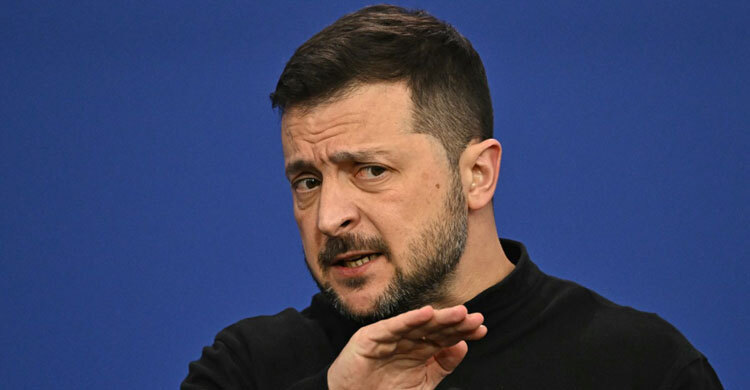News
Syrian Rebels Advance on Homs as Russia Urges Citizens to Exit

The Russian Embassy in Syria has issued an urgent advisory for its citizens to leave the country, citing the escalating “difficult military-political situation.” The embassy’s statement, released via Telegram, recommended departing on commercial flights through available airports.
This development underscores the growing instability in Syria, where rebel forces, including the Islamist militant group Hayat Tahrir al-Sham (HTS) and allied factions, are making significant advances. Having already seized towns and villages across Aleppo, Idlib, and Hama provinces, they are now closing in on Homs, a critical stronghold.
The offensive, which began last week, has displaced at least 370,000 people according to the UN, with fears that the number could soar to 1.5 million. Stéphane Dujarric, spokesperson for the UN Secretary-General, emphasized the dire situation:
“Since the escalation of hostilities, at least 370,000 men, women, and children have been displaced, including 100,000 who left their homes more than once.”
Samer AbdelJaber of the UN’s World Food Programme highlighted the rapid displacement figures:
“The number of displaced rose from 48,000 to nearly 280,000 in just the initial hours after the escalation on 27 November.”
Russia, a key ally of Syrian President Bashar al-Assad, has been deeply involved in the conflict, supporting the regime through military interventions. Last week, Russian airstrikes targeted the rebel-held city of Idlib in an attempt to slow their advances. Amid growing pressure, Ukrainian intelligence suggested that Russia might deploy mercenaries from private military companies to bolster Assad’s forces.
The humanitarian toll of the offensive is mounting, with the UN warning that millions could be at risk if the fighting continues.
News
Ukraine and US Reach Minerals Agreement Amid Ongoing War

Ukraine has confirmed an agreement with the United States on a minerals deal, calling it a “positive outcome” with “good amendments,” though officials have yet to disclose further details.
Media reports suggest that Washington has dropped an initial demand for a $500 billion share in potential revenue from Ukraine’s natural resources. However, the deal does not appear to include the firm security guarantees that Kyiv had sought.
US President Donald Trump announced that Ukrainian President Volodymyr Zelensky is expected to travel to Washington this week to finalize the agreement. The development follows a series of tense exchanges between the two leaders.
While Trump did not explicitly confirm the deal’s finalization, he stated that in return, Ukraine would get “the right to fight on.” Acknowledging Ukraine’s resilience, he added, “Without the United States and its money and its military equipment, this war would have been over in a very short period of time.”
When asked whether US military support for Ukraine would continue, Trump indicated that assistance might persist “until we have a deal with Russia,” stressing the need for a negotiated settlement to end the conflict. He also suggested that any future peace deal would require “some form of peacekeeping” acceptable to all parties involved.
Ukraine possesses vast deposits of critical minerals such as lithium and titanium, alongside substantial reserves of coal, gas, oil, and uranium—resources valued in the billions. Trump has framed the agreement as one that will allow the US to recoup more than it has spent on supporting Ukraine. However, final details of the deal reportedly remain under negotiation.
News
Australian Nurses Suspended Over Antisemitic Video Amid National Crackdown on Hate Speech

Two Australian nurses have been suspended after a video surfaced showing them making violent antisemitic remarks, including threats to harm Israeli patients. The incident, which allegedly took place at a hospital in Sydney, has sparked outrage and is now under police investigation.
New South Wales (NSW) Health Minister Ryan Park confirmed that the two individuals had been stood down immediately and would never work in the state’s healthcare system again. Authorities are conducting a thorough review of hospital records to ensure no patients were harmed, though a rapid preliminary check found nothing unusual.
Australian Prime Minister Anthony Albanese condemned the video as “sickening and shameful,” emphasizing that antisemitism has no place in Australia. His comments come just days after the country passed stricter hate crime laws in response to a surge in antisemitic incidents.
The video, shared online by Israeli content creator Max Veifer, appears to have been recorded in a hospital setting. In the footage, a man claiming to be a doctor tells Veifer he has “beautiful eyes” but adds, “I’m sorry you’re Israeli,” before making a throat-slitting gesture and stating he sends Israelis to “Jahannam” (an Islamic concept of hell). A woman later appears on screen, saying she refuses to treat Israelis and will “kill them” instead.
Despite the video being edited with emojis and censoring certain comments, authorities have not questioned its authenticity. NSW Police stated they have identified the individuals involved and are investigating whether criminal charges should be pursued.
Albanese vowed that anyone found guilty of committing hate crimes will “face the full force of our laws.” Park echoed this sentiment, apologizing to the Jewish community and reassuring them that NSW hospitals remain committed to providing “first-class” healthcare to all patients, regardless of background.
News
Coca-Cola May Increase Plastic Bottle Use Due to Trump’s Aluminium Tariffs

Coca-Cola has warned that it may have to increase the use of plastic bottles in the U.S. if President Donald Trump’s new tariffs make aluminium cans too expensive. The announcement was made by Coca-Cola CEO James Quincey during a call with investors.
Trump’s recent order imposes a 25% import tax on all steel and aluminium entering the U.S., a move expected to raise costs for canned food and beverage manufacturers. Quincey acknowledged that Coca-Cola could shift more emphasis to PET plastic bottles to manage affordability.
“If aluminium cans become more expensive, we can put more emphasis on PET bottles,” he said, while noting that packaging costs are only a small fraction of the company’s overall expenses.
This shift comes shortly after Coca-Cola scaled back its sustainability goal of using 50% recycled materials in its packaging by 2030, adjusting the target to 35-40% by 2035. The beverage giant has been under pressure from environmental groups, which have labeled it the world’s “top global plastic polluter” for six years in a row.
Aluminium cans, despite being pricier, are far more recyclable than plastic bottles. The U.S. imports nearly half of its aluminium, according to the United States Geological Survey, making the tariffs a significant factor in production costs. Unlike in 2018, when some can-makers received exemptions from similar tariffs, Trump has now ruled out any exceptions for products or countries.
In a separate move, Trump also signed an executive order rolling back efforts to replace plastic straws with paper alternatives in government facilities—undoing a policy introduced by former President Joe Biden, who had called plastic pollution a “crisis.”



















